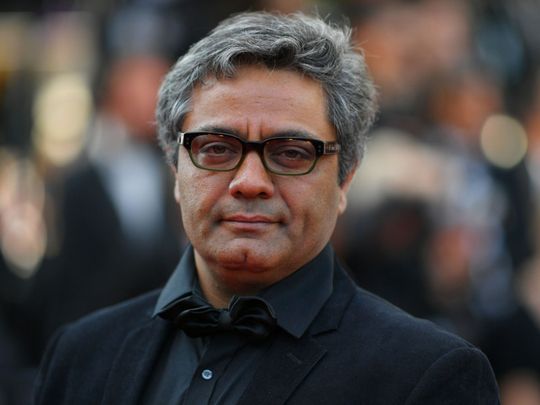
A movie by an Iranian who was arrested for his work in Iran won the Un Certain Regard competition at the Cannes Film Festival on Saturday, bolstering the country’s filmmakers’ reputation for defying the censors to make high-quality films.
A Man of Integrity, filmed in Iran but unlikely ever to be shown there due to censorship, is a tense drama about a man persecuted by powerful economic and political forces who refuses to bribe his way out of trouble.
Writer-director Mohammad Rasoulof, 45, was arrested alongside acclaimed director Jafar Panahi in 2010 and sentenced to jail. He is free on bail and has continued to make films that explore political and moral corruption.
Clutching the scroll he had just been awarded, Rasoulof said he hoped the prize would make things easier for him to make films in Iran.
“I love Iran, but it’s like an alcoholic father, sometimes it hits me,” he said.
Rasoulof’s win comes three months after Asghar Farhadi won the Best Foreign Language Film Oscar for The Salesman, also shot in Iran, and recognises him as a major force in international cinema.
“International support has really helped all filmmakers and especially me, by stopping the pressure they were putting on us,” Rasoulof said in an interview earlier in the festival.
Rasoulof said Iranian authorities had given him a permit to shoot A Man of Integrity but only after he signed a paper promising not to make it “too dark”. He has not been granted permission to screen the film in Iran so, like his previous five features, it is unlikely to be seen there except via unauthorised copies.
Variety called A Man of Integrity “a tense, enraging drama about corruption and injustice... a scathing critique of contemporary Iranian society ... [that] manages to resonate on both specific and universal levels”.
Un Certain Regard, a separate section from the main contest at Cannes, recognises younger talent and innovative filmmaking. The winners in the main competition, including the Palme d’Or for best picture, will be announced on Sunday.
Before his arrest, Rasoulof was making films that showed the problems of Iranian society through allegories rather than straightforward story-telling.
In his first major film, Iron Island in 2005, families live and work for a benign dictator on a rusting beached cargo ship. In his second in 2009, The White Meadows, a man collects the tears of people living on islands made of salt.
“When this confrontation happened between me and the security services, I was thinking: ‘I had always tried not to let this happen but now it is happening and I want to make my movies, I want to stay true to myself,’” Rasoulof, 45, said in an interview at the Cannes Film Festival.
So his response to the arrest was to make his 2013 film Manuscripts Don’t Burn, dropping all metaphor and symbolism to show in gritty detail the story of two goons hired to torture and murder political dissidents.
That was filmed in secret, with a six-person crew and without any authorisation. Like all his other movies, it has never been released in Iranian movie theatres.
With huge acclaim for Iranians such as Panahi and Asghar Farhadi, who won his second Oscar this year, has also come support for directors making movies in Iran, risking censorship, arrest and jail.
“International support has really helped all filmmakers and especially me, by stopping the pressure they were putting on us,” Rasoulof said.
With his one-year jail sentence suspended after paying bail, Rasoulof is still at risk of judicial interference in his work.
But he is surprisingly optimistic, saying he hopes some day to get his films shown in Iran.












